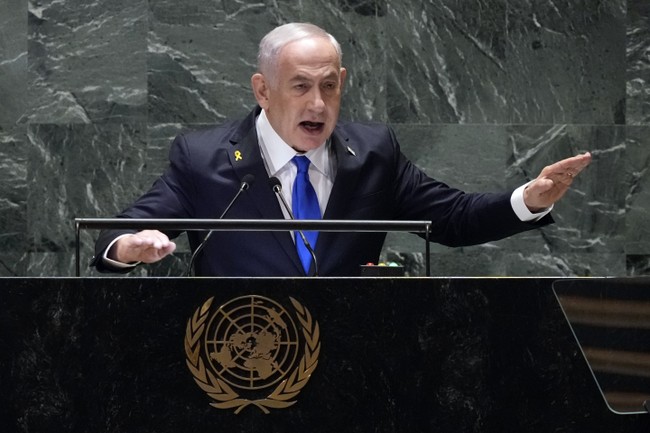From PJMedia.com

The death of Yahya Sinwar, Hamas’ top leader and the mastermind of the group’s Oct. 7 attack, has opened the door to a possible ceasefire and hostage deal. Hamas is reeling from a year of being battered, as well as the systematic removal of its top leadership.
Advertisement
Its communications are shattered, its fighters killed, and its weapons caches have been blown up. Further weapon shipments are cut off, and they’re not getting any reinforcements. They are a shadow of their former selves and have been in survival mode for months.
It’s not working. And now, with the death of Sinwar, Israel’s war aims have largely been met.
For the Israeli prime minister, the death of Sinwar in Rafah, a city that Joe Biden claimed would cost Israel U.S. support if attacked, must be a total vindication. But is it enough to end the war?
“It is now clear to everyone, in Israel and in the world, why we insisted on not ending the war,” the prime minister said in his Hebrew-language statement Thursday night. “Why we insisted, in the face of all the pressures, to enter Rafah, the fortified stronghold of Hamas where Sinwar and many of the murderers hid.”
“Biden told him three times over the phone not to go into Rafah,” said one official. “Not only did Netanyahu say we would go into Philadelphi [the Gaza-Egypt border corridor] and Rafah, but that we would fight with our fingernails.”
That’s why Israel is going to get almost everything it wants out of this war. This Israeli government has done something that no other Israeli government has done: defied the will of the United States to achieve its war aims. And because of that, the people of Israel are safer than they’ve ever been.
The fact that Israeli leaders are squabbling over credit for the Rafah operation and its culmination in the elimination of Sinwar, while assigning blame to rivals for the delay, underscores just how successful it has been.
Throughout the operation, the IDF defeated four Hamas battalions and assumed control over the key Philadelphi Corridor, while cutting off the smuggling routes Hamas had previously used to bring mass amounts of weaponry from Egypt into Gaza — both above and below ground. The dismantling of Hamas’s fighting forces in Rafah has solidified the sense that, at least on the basic military level, the war is essentially won.
There is no question that Netanyahu has been on a winning streak of late, ever since he decided to turn up the pressure on Hezbollah in September, with Israel swiftly dealing massive damage to the group in a matter of weeks, eliminating most of its leadership while crippling its capability to wage war.
Advertisement
The opposition in Israel claims Netanyahu doesn’t want to end the war because he wouldn’t survive politically. The two far-right parties that have threatened to leave the prime minister’s coalition if he ends the war before Hamas is destroyed might be persuaded that the current situation in Gaza will never be more favorable for Israel and that a cease-fire would bring the hostages home.
Does Netanyahu believe that?
“For the sake of their own physical survival, they may make more compromises than the man who initiated the whole war,” Ibrahim Dalalsha, director of the Horizon Center, a research group in the West Bank, told The New York Times. But, he added, “They won’t say: ‘Yes, we’ll do whatever you want, Mr. Netanyahu.’”
For Netanyahu, a peace deal also brings political risks. He has long opposed a Palestinian state, as have the far-right parties in his governing coalition. Both the U.S. and Saudi Arabia, among other countries, favor a two-state solution and have said any peace deal must include steps toward a Palestinian state. Agreeing to those steps could unravel Netanyahu’s coalition, either costing him his job or forcing him to make an alliance with more centrist parties.
“A lot of people seem hopeful that Netanyahu will use Sinwar’s killing as an opportunity to declare victory, negotiate a hostage deal and end the war,” Gregg Carlstrom, a Middle East correspondent for The Economist, wrote. “But to believe that you basically have to ignore everything Netanyahu has said and done over the past year.”
Perhaps the biggest question is whether Sinwar’s death is big enough of a development to change the political dynamics in both Israel and Gaza.
Advertisement
Biden and our European allies could easily derail any deal by insisting on a “two-state solution” as part of a ceasefire deal. Netanyahu will never accept a Palestinian state next to Israel, and Biden has got to realize that if he wants the war to end.
Netanyahu has several options before him. Ending the war is only one of them.
All articles possibly rephrased by InfoArmed.com
